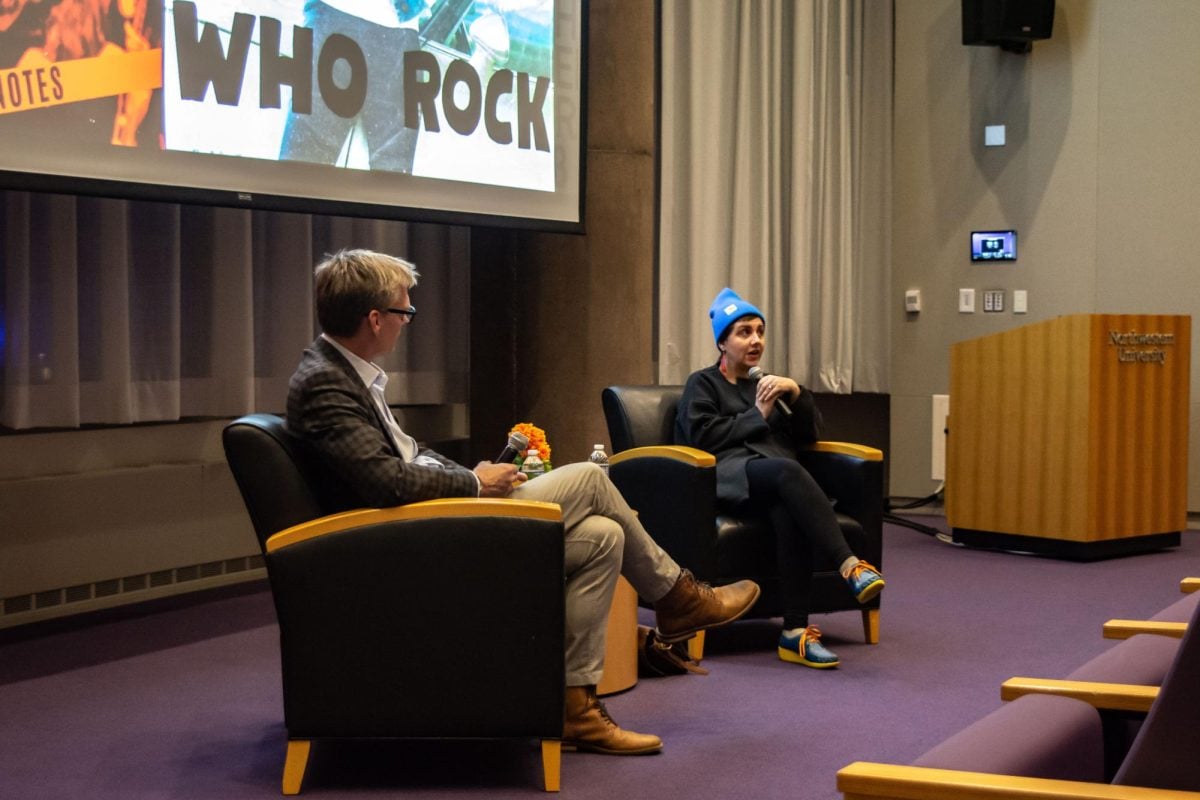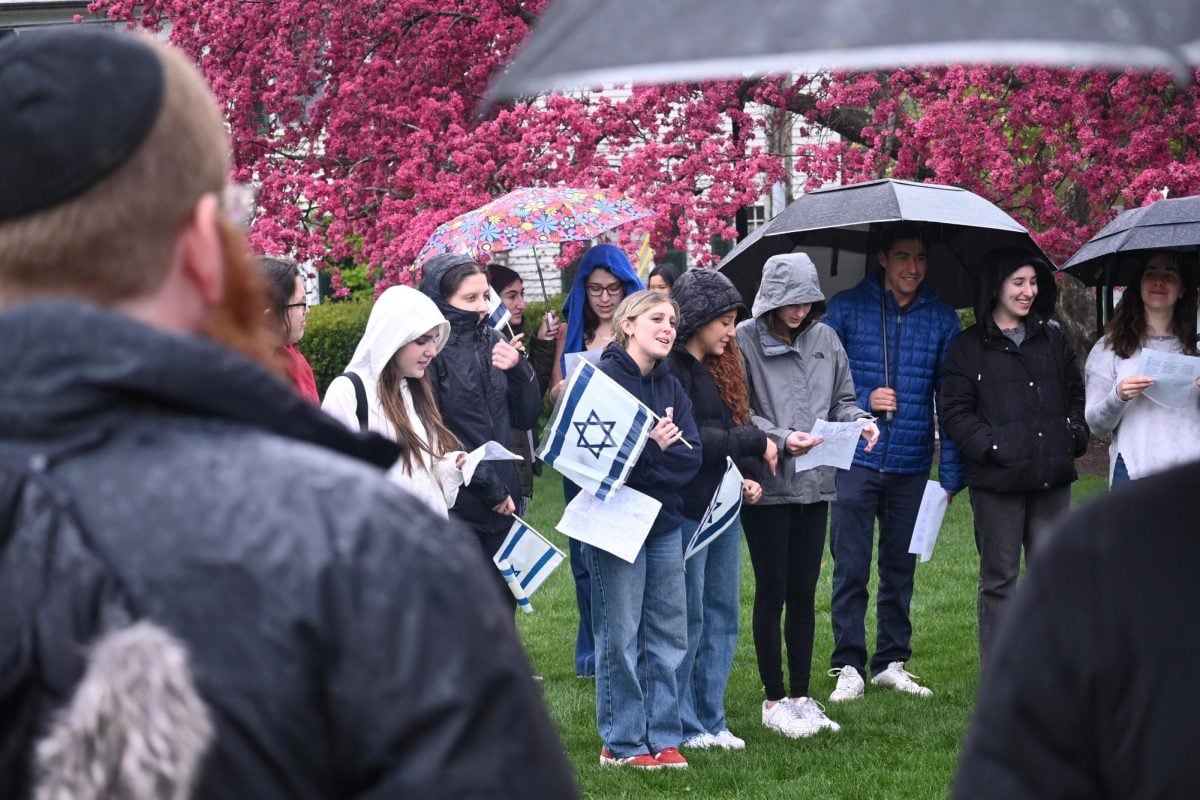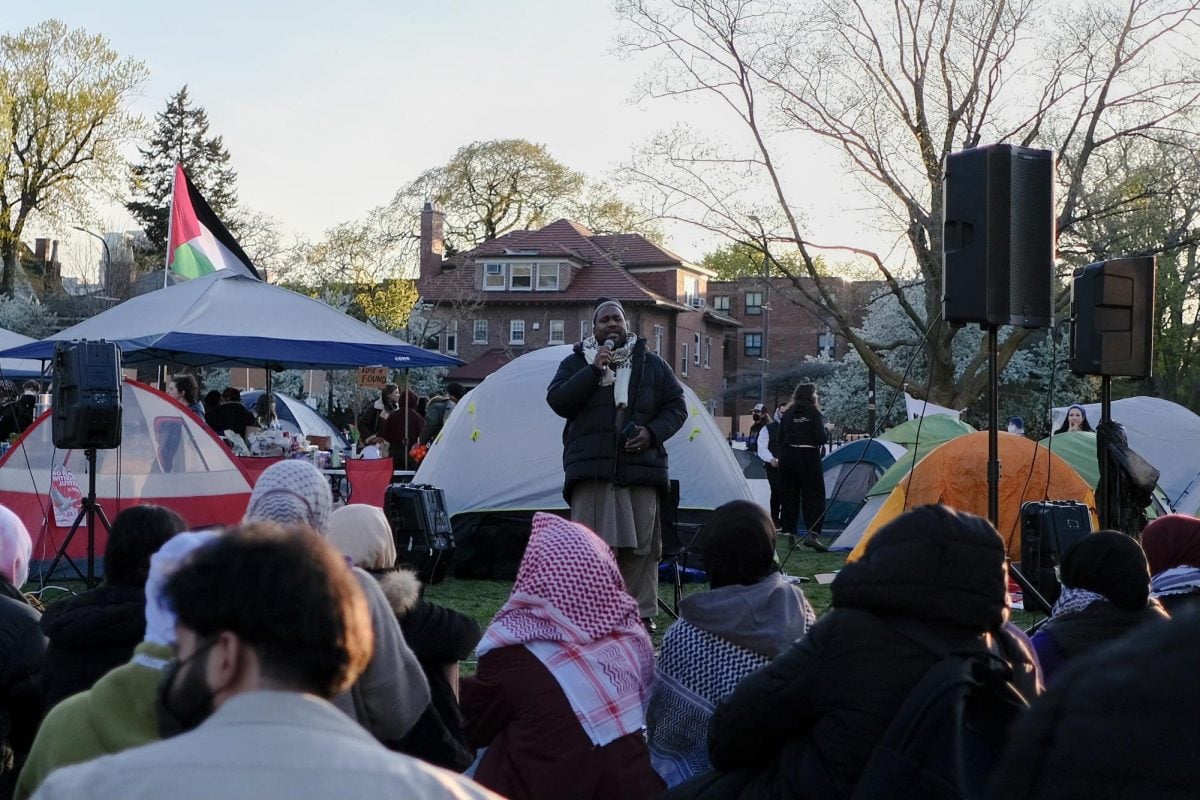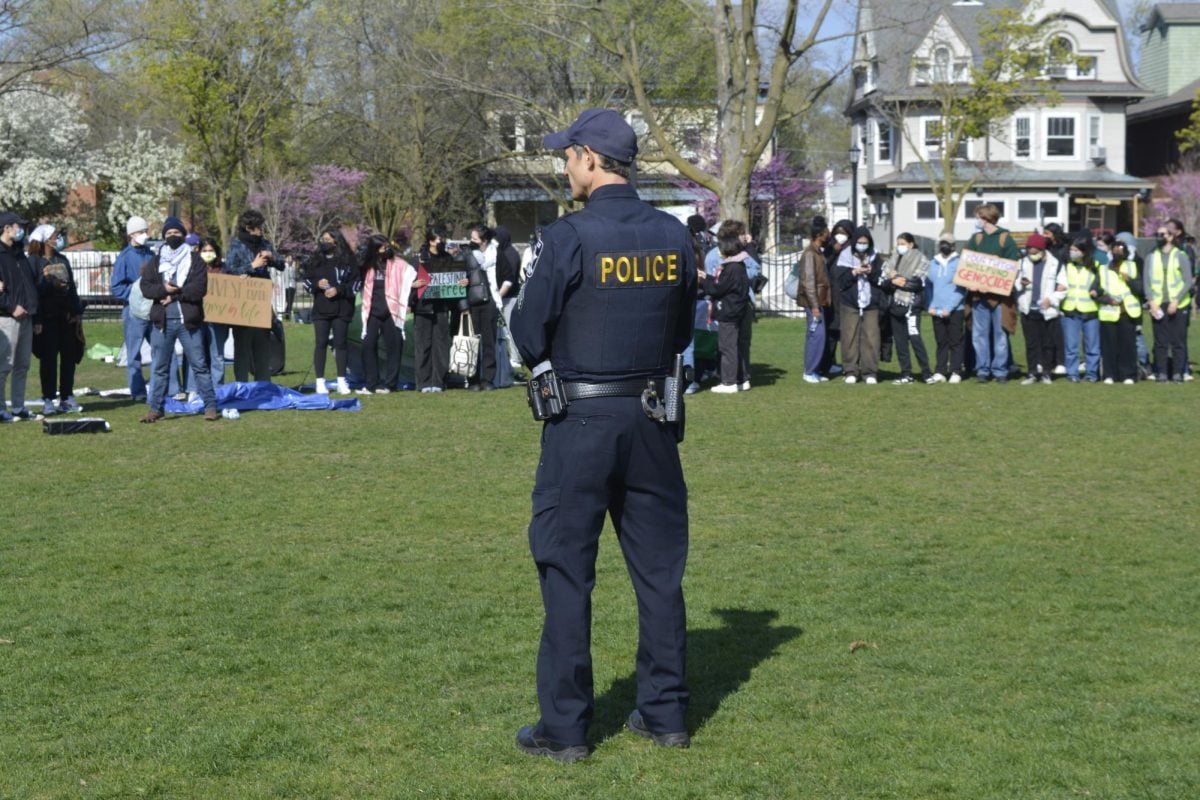Writer, filmmaker and music journalist Jessica Hopper described her experience in the music industry at this year’s annual Weber Lecture. Hopper also highlighted the significant but underappreciated contributions female artists have made to music Wednesday at the Segal Visitors Center.
Hopper, 47, has written for numerous music publications like Pitchfork and Rolling Stone. Citing journalists like Ellen Willis as influences for her writing, she said she applies a similar focus on feminism to documentary filmmaking. Coming off of the release of her 2022 docuseries “Women Who Rock,” detailing the experiences of over 40 musicians, she’s now working on her first feature film.
Donning a bright blue beanie, Hopper recounted her eventful past weekend — she “got to hold Erykah Badu’s blunt.” With that same sense of humor, she denounced the Grammys: “I don’t know her!”
“I think the most exciting thing for me personally to experience is that I got less dumb over the last 30-some years,” she said.
The Weber Lecture is held in honor of Admiral Alban Weber and hosted by Northwestern’s political science department. It is a discussion of government and politics with speakers that have expertise in the field.
Seated across from moderator political science Prof. Ian Hurd, Hopper marked a shift from the Weber Lecture’s past speakers, many of whom have held government positions or served as political scholars. For Hopper, music, feminism and politics are intrinsically linked, she said.
Hurd noted that powerful men in the music industry have historically stood in the way of female success.
Hopper detailed some of the stigmas that women face. She analyzed early coverage of punk rock singer Patti Smith that questioned what she could bring to rock music as a “person with a uterus.”
“When it comes to being allowed bodily integrity in music spaces … some people say music is the worst (industry),” Hopper said.
Smith was also the first female rocker to be considered an “artist” –– as opposed to just a performer –– Hopper added.
She said the music industry still tends to only allow for one female artist in a genre and reduces them to looks and sexuality.
“There are a lot of women who haven’t been asked important questions … (but) so few that are accorded their due,” Hopper said.
Hopper got her start in music journalism at an early age. She started a fanzine for music during her freshman year of high school called “Hit it or Quit it” after observing that there weren’t enough female voices in music journalism.
Communication freshman Angelina Randazzo, said she found Hopper’s discussion of Riot grrrl zines especially important.
“(They helped) legitimize teenage girl’s interests as an art form,” Randazzo said.
While the fandom is undervalued, so are the women themselves making music, according to Hopper.
“Women are forever just breaking through, as if women weren’t inherent to (music),” Hopper said. “Women built these genres.”
Email: [email protected]
Related Stories:
— Prof. Sheryl Lightfoot speaks on “Indigenous Disruptions” as Weber lecturer
— Obama’s speechwriter, Northwestern alumnus Cody Keenan speaks on campus
— Leading music critics agree musicians must get political







